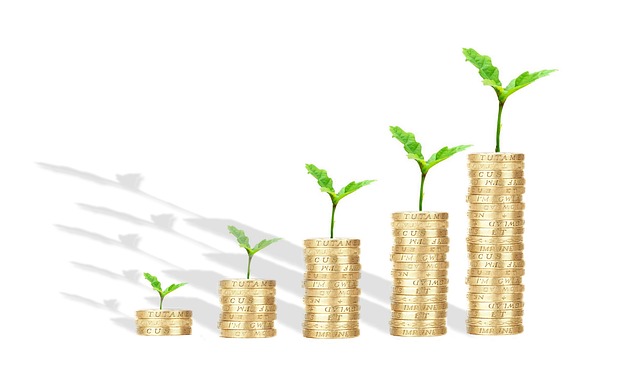Debt consolidation in South Africa offers individuals and families a strategic financial solution to manage multiple debts effectively. By combining several debts into one single loan with lower interest rates, borrowers can simplify repayments, reduce borrowing costs, and improve their credit score over time. Various lenders including banks, credit unions, and online platforms facilitate this process. Options include unsecured personal loans, home equity loans, low-interest government loans, and financial assistance programs. Borrowers should carefully explore terms, conditions, and potential risks to align decisions with their financial goals. Reputable consolidators with clear terms, competitive rates, and flexible repayment structures are key to achieving positive outcomes. This guide outlines a comprehensive strategy for consolidating debts in South Africa through a step-by-step process.
In the face of rising living costs and unpredictable financial landscapes, many South Africans are burdened with multiple debts. The consolidation of debt offers a potential solution for managing these obligations more effectively. This comprehensive guide explores various loan options for debt consolidation in South Africa, helping you understand the process, its benefits and risks, and how to choose a reliable provider. By the end, you’ll be equipped to make informed decisions regarding your financial future.
- Understanding Debt Consolidation: A Comprehensive Guide
- Types of Loan Options in South Africa for Debt Consolidation
- Advantages and Disadvantages of Debt Consolidation Loans
- Choosing the Right Debt Consolidation Provider in SA
- Step-by-Step Process: Consolidating Your Debts in South Africa
Understanding Debt Consolidation: A Comprehensive Guide

Debt consolidation is a strategic financial move that combines multiple debts into one single loan with a lower interest rate. In South Africa, this process offers individuals and families a more manageable way to pay off their debts over an extended period. By consolidating debt, borrowers can simplify their repayment schedule, reduce the overall cost of borrowing, and improve their credit score over time.
This approach involves taking out a new loan to settle existing debts, making it easier to keep track of payments. Lenders in South Africa often provide this service through various channels, including banks, credit unions, and online lenders. Each option has its own set of terms and conditions, so understanding the consolidation process is crucial for making an informed decision regarding debt management.
Types of Loan Options in South Africa for Debt Consolidation

In South Africa, individuals facing mounting debts have several loan options for debt consolidation. One popular choice is unsecured personal loans, which are accessible to those with good credit scores and offer flexible repayment terms. These loans can be used to consolidate various debts, such as credit card balances and store cards, providing a single monthly payment at a potentially lower interest rate. Another option is home equity loans, where individuals use the equity in their homes as collateral, often resulting in lower borrowing costs but carrying the risk of losing their property if repayments are missed.
Additionally, low-interest government loans and financial assistance programs specifically designed for debt relief and consolidation are available through various South African institutions. These initiatives aim to support citizens burdened by debt, offering them a chance to regain financial stability. It’s crucial for borrowers to explore these options carefully, considering the terms, conditions, and potential risks associated with each type of loan before making a decision that aligns with their financial goals and circumstances in the consolidation of debt in South Africa.
Advantages and Disadvantages of Debt Consolidation Loans

Debt consolidation loans offer several advantages for South Africans struggling with multiple debts. By combining multiple high-interest debts into a single, lower-interest loan, borrowers can simplify their repayment schedule and potentially reduce the overall cost of their debt. This makes it easier to manage repayments, as there’s only one monthly payment to keep track of. Moreover, consolidation can improve credit scores over time by demonstrating responsible financial management.
However, consolidation isn’t without disadvantages. It’s important to remember that the loan amount will generally be higher than the total of the debts being consolidated. This is because lenders charge interest on the full amount. Additionally, if not managed carefully, consolidation can lead to further debt accumulation if borrowers spend more than they can afford on additional borrowing or lifestyle expenses, now that a portion of their income is dedicated to debt repayment.
Choosing the Right Debt Consolidation Provider in SA

When considering debt consolidation in South Africa, it’s paramount to select a reputable provider to ensure a successful financial reset. With numerous options available, comparing different lenders and their offers is essential. Look out for companies that specialise in debt consolidation and have a proven track record of helping South Africans regain control of their finances. Reputable providers will offer transparent terms, competitive interest rates, and flexible repayment plans tailored to your needs.
Check for certifications, licensing, and customer reviews to gauge the provider’s reliability. A trusted consolidation service should provide detailed information about their fees, potential savings, and the consolidation process. They should also offer support throughout your journey, ensuring you understand your new financial obligations and helping you stay on track.
Step-by-Step Process: Consolidating Your Debts in South Africa

Consolidating your debts in South Africa involves a strategic approach to simplify and manage your financial obligations more effectively. Here’s a step-by-step process to guide you through this process:
1. Assess Your Financial Situation: Begin by evaluating all your current debts, including credit cards, personal loans, and any other outstanding payments. Calculate the total amount owed, interest rates, and minimum monthly payments for each debt. This step is crucial as it provides a clear picture of your financial landscape.
2. Explore Debt Consolidation Options: South Africa offers various debt consolidation options, such as debt consolidation loans, credit card balance transfers, or home equity loans. Research these options to find the most suitable one based on your circumstances. Compare interest rates, terms, and conditions to ensure you’re making an informed decision that aligns with your financial goals.
3. Choose a Debt Consolidation Lender: Select a reputable lender that offers transparent terms and competitive interest rates. Check their licensing and regulatory compliance to ensure trustworthiness. Some banks and credit unions in South Africa provide debt consolidation services, allowing you to bundle multiple debts into one manageable payment.
4. Apply for the Consolidation Loan: Prepare all necessary documentation, including proof of identity, income statements, and details of your existing debts. Submit an application to the chosen lender, who will assess your financial health and determine your loan eligibility. Be prepared to negotiate terms and interest rates based on your creditworthiness.
5. Repayment Plan and Budgeting: Once approved, review the consolidation loan agreement carefully. Understand the repayment schedule, including the number of installments, due dates, and any associated fees. Create a realistic budget that incorporates the new consolidated debt payment along with your other essential expenses to ensure timely repayments without compromising your daily life.
When considering debt consolidation in South Africa, understanding your options and making informed decisions is key. By familiarising yourself with various loan types and providers, you can navigate this process effectively. Remember, debt consolidation isn’t a one-size-fits-all solution, so weigh the advantages and disadvantages carefully. With the right approach, consolidating your debts could lead to improved financial health and a clearer path towards debt freedom in South Africa.

